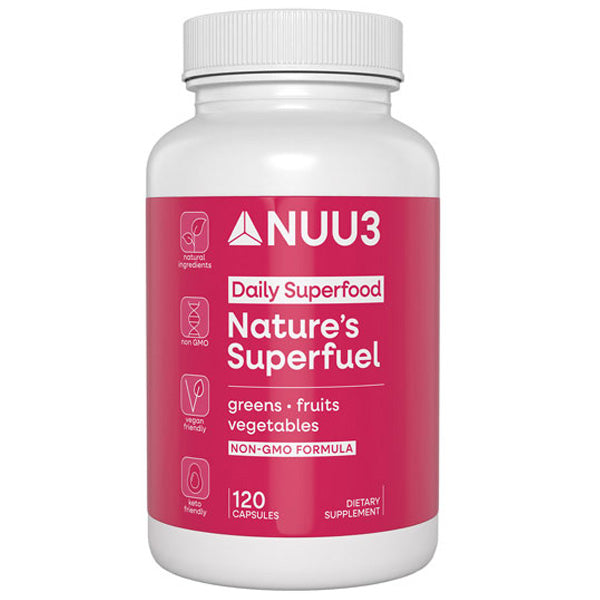Tips and Tricks to Manage Extreme Fatigue before Period

Before a menstrual period arrives, women feel a wide range of changes in their physical and mental well-being. They may feel moody, and bloated, have headaches, and so much more. One of the most common experiences among women during their cycle is extreme fatigue before one’s period. Since premenstrual fatigue happens every month, this subject deserves a lot more attention. Throughout this post, you will learn what causes fatigue in PMS and how to overcome it.
Is it Normal to Feel Tired before a Period?
Feeling extreme fatigue before one’s period is normal and it is one of the most common symptoms of premenstrual syndrome (PMS). Tiredness can be frustrating and overwhelming, but it’s important to know that it’s normal and isn’t a sign of some serious health problem in most cases.
In rare instances, severe fatigue accompanied by specific emotions could indicate the presence of a premenstrual dysphoric disorder (PMDD), a more serious form of PMS. Further in this post, you will learn how to overcome PMS fatigue.
What Causes You to Feel Tired Before a Period?
The main cause of extreme fatigue before one’s period is the lack of serotonin, a neurotransmitter that participates in several functions including mood, sleep, and digestion. The levels of serotonin may fluctuate before menstruation, which could affect your mood and energy levels.
Moreover, period fatigue may also result from sleep problems during PMS. Evidence shows[1] that women with PMS and PMDD tend to report sleep-related complaints such as insomnia, non-restorative sleep, frequent awakening, nightmares, and overall low quality of sleep. For that reason, they are prone to daytime sleepiness and fatigue.
Changes in neurotransmitter levels and quality of sleep have a lot to do with hormone fluctuations.
Relationship between Hormones and Energy Levels
Hormones play a major role in energy levels, including the time leading up to your period. Progesterone and estrogen are particularly important here. During the latter half of the menstrual cycle, the progesterone levels go up, thus promoting relaxation[2] and potentially causing drowsiness. Moreover, higher progesterone levels may influence serotonin which regulates your sleep and mood. As a result, you may develop PMS fatigue.
Not only does progesterone make you tired, but estrogen can affect your energy levels as well. Fluctuations in estrogen levels influence the way your body uses energy. That way, when the concentration of estrogen goes down, you may experience tiredness before your period.
In addition to estrogen and progesterone, other hormones also play a role in extreme fatigue before one’s period. These include testosterone and cortisol. Testosterone plays a role in energy and strength. Fluctuations in this hormone can also contribute to low energy levels. Additionally, cortisol can also contribute to fatigue[3] as the primary daytime hormone that keeps us awake. Changes in cortisol affect our energy levels and cause fatigue that even sleep can’t fix.
Other Factors that Contribute to PMS Fatigue
In addition to neurotransmitters and hormones, other factors[4] contribute to extreme fatigue before one’s period. These include:
- Lack of sleep
- Not drinking enough water
- Other PMS symptoms such as bloating, constipation, and headaches
- Exercising too much
- Not eating enough
- Anemia
- Energy burning during ovulation
- Cravings for sugary foods
- Nutrient deficiencies (B-complex vitamins, vitamin D, iron, Omega-3 fatty acids)
Why Does PMS Fatigue Worsen with Age?
Extreme fatigue before one’s period worsens with age due to several factors of which hormonal fluctuations are the biggest culprit. As you age, fluctuations in hormones tend to be more dramatic. As a result, PMS intensifies which also includes fatigue.
Moreover, low energy in women may also stem from stress and lifestyle. With age, your responsibilities keep multiplying, which can lead to stress and tiredness.
As women age, they are more prone to health conditions that affect their energy levels. Your PMS fatigue may worsen with age due to changes in metabolic rate. Your metabolism slows down with age and affects the way your body processes energy.
Tips to Overcome Extreme Fatigue Before Period
Period fatigue can be quite overwhelming and harm your quality of life. You can overcome premenstrual fatigue with the simple remedies described below.
Nutritious and energizing meals
The foods you eat have a major impact on your energy levels. Processed and sugary foods and trans fats deliver empty calories, which affect your energy. Sure, sugar can give you an energy boost for a while but it’s followed by fatigue. You need a balanced diet abundant in vitamins, minerals, protein, healthy carbs, and fat to combat tiredness. Products like Nuu3 Nature’s Superfuel deliver many vitamins and minerals while boosting your energy, which is why combining them with a healthy diet is useful.
Stay hydrated
Most people don’t drink enough water during the day. Lack of fluids in the body may deplete energy levels and cause fatigue. That explains why you feel “slow”. Water is refreshing, which is why you feel much better when you’re drinking enough during the day.
Strive to drink up to eight glasses of water. Studies show[5] that water balance can influence endurance, power, and strength.
Drinking fluids during the day is important, but make sure to drink water rather than fruit juices and other similar beverages. They’re abundant in sugar, which isn’t good for you.
Prioritize sleep
Good sleep is the most important factor in energy because it enhances the ability[6] to make adenosine triphosphate (ATP), the energy molecule. Both brain and body rest when you sleep so they can function properly during the next day. Sleep loss[7] is associated with excessive daytime sleepiness because it makes you feel tired.
To combat period fatigue, you should aim for seven to nine hours of sleep per night. Go to bed every night at the same time and wake up in the morning at the same time too. Don’t consume stimulants like caffeine before bedtime.
For the best rest and more energy, you may want to combine Sleep Support Gummies and Nuu3 ACV Gummies. One product promotes sleep while the other one will keep you energized during the day.
Engage in gentle exercise
While activity is the last thing you want when feeling fatigued, gentle exercise can do wonders for low energy in women. Activities such as yoga, swimming, walking, and light exercises can improve blood flow, release endorphins, and positively influence your mood.
Evidence shows[8] that moderate aerobic exercise increases energy levels, improves concentration, and helps relieve most PMS symptoms. That’s exactly why exercise is a good remedy for PMS fatigue.
Go for 150 minutes of moderate aerobic exercise a week. You may also want to incorporate strength training at least two days a week.
Manage stress
Stress is a major cause of low energy in women. High levels of cortisol impair your sleep quality and contribute to hormonal imbalances. Additionally, stress can worsen PMS symptoms which further deplete energy levels.
Not only does progesterone make you tired, but so does cortisol. A growing body of evidence confirms[9] the strong impact of stress on the development and severity of fatigue.
Instead of waiting for stress to go away on its own, you need to be proactive and manage it properly. The easiest way to make it happen is to try natural products like Nuu3 Keep Calm Gummies because they promote relaxation and good mental health.
Other stress relief methods include meditation and mindfulness, exercise, taking a walk, finding a hobby, expressing your creativity, and deep breathing exercises.
Stay fueled with healthy snacks
To manage fatigue before your period, you need to avoid or reduce your intake of unhealthy snacks as tempting as they may be. You should focus on healthy snacks that maintain stable sugar blood sugar levels and prevent energy crashes. Good options are fruits, nuts, and yogurt.
Frequently Asked Questions
Do you gain weight before your period?
Yes, you may gain weight before your period. The main culprit behind weight gain is the production of the hormone progesterone. Not only does progesterone make you tired, but it also causes the body to retain water. Water retention may induce puffiness and swelling in breasts, extremities, and the abdominal area. As a result, you may gain weight but not fat.
Should you sleep more on your period?
Since many women experience period fatigue, getting enough sleep could be beneficial. Quality sleep promotes hormone regulation, improves mood, and aids management of period-related symptoms.
Why can't I sleep the week before my period?
You can’t sleep the week before your period due to hormonal fluctuations, primarily changes in estrogen and progesterone levels. Hormonal fluctuations affect neurotransmitters such as serotonin and also act on melatonin thereby reducing sleep quality. Progesterone causes sleep fragmentation[10] and makes it difficult to get enough rest during the night. This translates to low energy in women the next day.
Bottom Line
Women’s menstrual cycle is characterized by highs and lows in hormones, mood, and energy levels. It’s not uncommon for women to experience extreme fatigue before one’s period. Fatigue has a tremendous impact on your quality of life since it reduces the interest in activities you usually enjoy. Your productivity at work or school also suffers.
Hormones are major contributors to fatigue during PMS. Not only does progesterone make you tired, but fluctuations in other hormones do the same too. By making simple lifestyle tweaks you can overcome this problem with ease.
References
1] ↑https://www.ncbi.nlm.nih.gov/pmc/articles/PMC4327930/
2] ↑https://hardingmedicalinstitute.com/progesterone-for-women-the-feel-good-hormone/
3] ↑https://pubmed.ncbi.nlm.nih.gov/19497676/
4] ↑https://evewellness.com/blogs/news/feeling-tired-before-your-period-normal-or-not
5] ↑https://www.ncbi.nlm.nih.gov/pmc/articles/PMC6213308/
6] ↑https://www.health.harvard.edu/healthbeat/how-sleep-boosts-your-energy
7] ↑https://www.ncbi.nlm.nih.gov/books/NBK547676/
8] ↑https://pubmed.ncbi.nlm.nih.gov/25279689/
9] ↑https://www.ncbi.nlm.nih.gov/pmc/articles/PMC3148561/
10] ↑https://www.ncbi.nlm.nih.gov/pmc/articles/PMC4442217/













